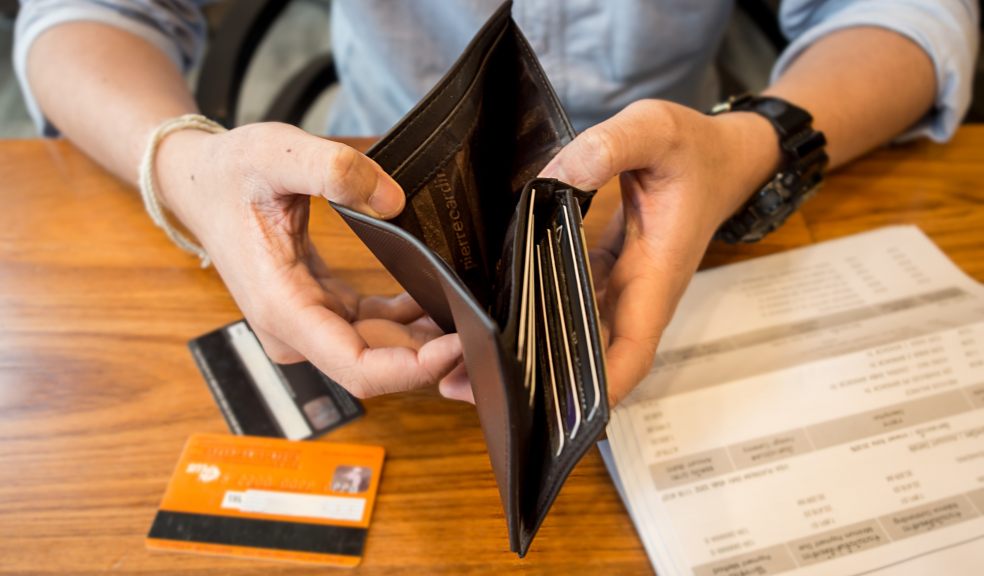
Financial Meltdown: 8 bad credit problems and how to deal with them
Do you feel like you're the only person in the world with bad credit? You're not alone. Nearly a third of Americans have bad credit.
The truth is, there are a lot of factors that contribute to bad credit scores — maybe you lost a job or had a medical emergency. These things are entirely out of your control, and yet, for many Americans, you still have to deal with the consequences of bad credit.
Just what are the consequences for people with credit problems? And what are the solutions? Read on for the answer!
1. Higher Than Average Interest Rates
The first consequence of having poor credit is that when you can obtain credit, you're most likely going to be facing higher than average interest rates. The truth is, everything is significantly more expensive when you have bad credit.
Let's say you want to buy a mattress, but like most people, you don't have a couple of grand laying around to spend on it. Your only other option is to finance the mattress. The standard offer is, as long as you pay off the mattress in twelve months, you'll pay the same as cash.
Except when you have poor credit, you don't qualify for the standard offer, so you have to opt for the lease to buy option. Sounds great until you find out that you have 90 days to pay off the mattress — otherwise you'll pay it off over the course of a year, but instead of paying $1,000 for the mattress, you'll end up paying $2,000.
As long as you have bad credit, you'll always end up paying more than someone who has good credit. The only solution to this is to shop around for the best credit offers for your financial situation. Over time, as your credit improves, you'll be able to get better interest rates.
2. It's Hard to Get a Personal Loan
Having bad credit doesn't exempt you from having financial emergencies. It does, however, make it much more difficult for you to get a personal loan when you need one.
Not only is it more difficult to qualify, but you'll end up having to pay significantly more when you repay the loan. If you have bad credit, make sure to do some shopping around to find a personal loan with the best repayment terms.
If you're in need of a personal loan and have bad credit, this web page can help you find the right one for your financial needs.
3. Getting an Apartment
Bad credit comes into play when you're trying to qualify for an apartment, too. Most landlords look at a combination of your overall credit score and your rental history when determining whether they want to rent to you. Too many negative marks on your credit history have consequences.
Negative credit history can cause a landlord to turn down your rental application or require a significantly higher deposit if you do get approved. In some instances, they may accept your application, but you'll need a guarantor to co-sign on your lease.
Once you have an apartment, make sure to pay your rent on time every single month. The longer you're in one place with a good payment history, the less likely it is that you'll need a guarantor in the future.
4. Getting a Car with Credit Problems
Unless you live in a major city with a reliable public transit system, a car is a requirement to get around.
As with many things, bad credit makes buying a car more expensive, and in some cases, it'll prohibit you from getting financing. A dealership may ask for a higher down payment or you'll walk out the door with a higher payment each month.
If you want to improve your credit, then buying a car and making on-time payments will give you a boost. Make sure to purchase from major car dealerships or national used car agencies like CarMax. They're more likely to send you out the door with an affordable car payment.
5. Buying a House
If you're tired of living under the rule of your landlord, then it's probably time to consider buying a house. Unfortunately, bad credit can complicate this process. And not just because you need decent credit to get a mortgage.
One thing mortgage companies look at when deciding whether to give you a mortgage and how much of a mortgage to give you, is your debt to income ratio. If you have a lot of debt and not a lot of income, your mortgage application is going to take a hit.
The best thing to do is to wait to buy a house until you've got your credit in better shape. At the very least, be sure to spend some time paying down your debt before applying for a mortgage.
And if the mortgage you get has less than desirable terms, consider refinancing after you spend some time improving your credit. You don't have to spend 30 years paying for your bad credit.
6. Credit Cards
Credit cards are the things that get us in the trouble in the first place, but if you want good credit, you have to have one. Unfortunately, bad credit can make getting a good credit card hard to get. If you can get one, you'll end up with a high interest rate and yearly fees.
Do your research before applying for a credit card. Pick the one with the lowest annual fees and interest rates. If you can't get approved for an unsecured card, consider applying for a secured credit card to help get you back on your feet.
7. Cell Phones, Utilities, and Cable
Cell phones, utilities, and cable are all things that you need in order to live a stable life. Surprise, surprise, bad credit can have an impact on your ability to obtain these services, too.
In many cases, bad credit means you'll have to pay a hefty deposit to obtain service. Thankfully, many companies will refund your deposit after a specific amount of time.
If you can't get approved for a cell phone, you can purchase pay-per-use service until your credit is in good enough shape for a traditional plan. For utilities and cable, you may have to get a co-signer.
8. Getting a Job
As if looking for a job wasn't stressful enough, now we have to worry about our credit, too?
It may seem surprising, but bad credit can even impact your ability to get a job. Many employers run a credit check as part of their screening process. This is especially true for jobs that deal with money, finances, or sensitive personal information like social security numbers.
It's an unfortunate reality, especially when you need a job to pay off your debts. Until you've cleaned up your credit, steer clear of these employment areas. Instead, look for jobs that don't involve handling cash or sensitive information.
Take Control of Your Finances Today!
No one likes dealing with credit problems. And when you have bad credit, it feels like you're locked out of every opportunity that can help improve your credit issues. Thankfully, with a little time and diligence, you can work your way back into the good graces of the credit agencies.
Need more helpful information about finances, lifestyle, sports and more? We've got you covered! Check out the rest of our blog for more information that'll help make your life easier!




















